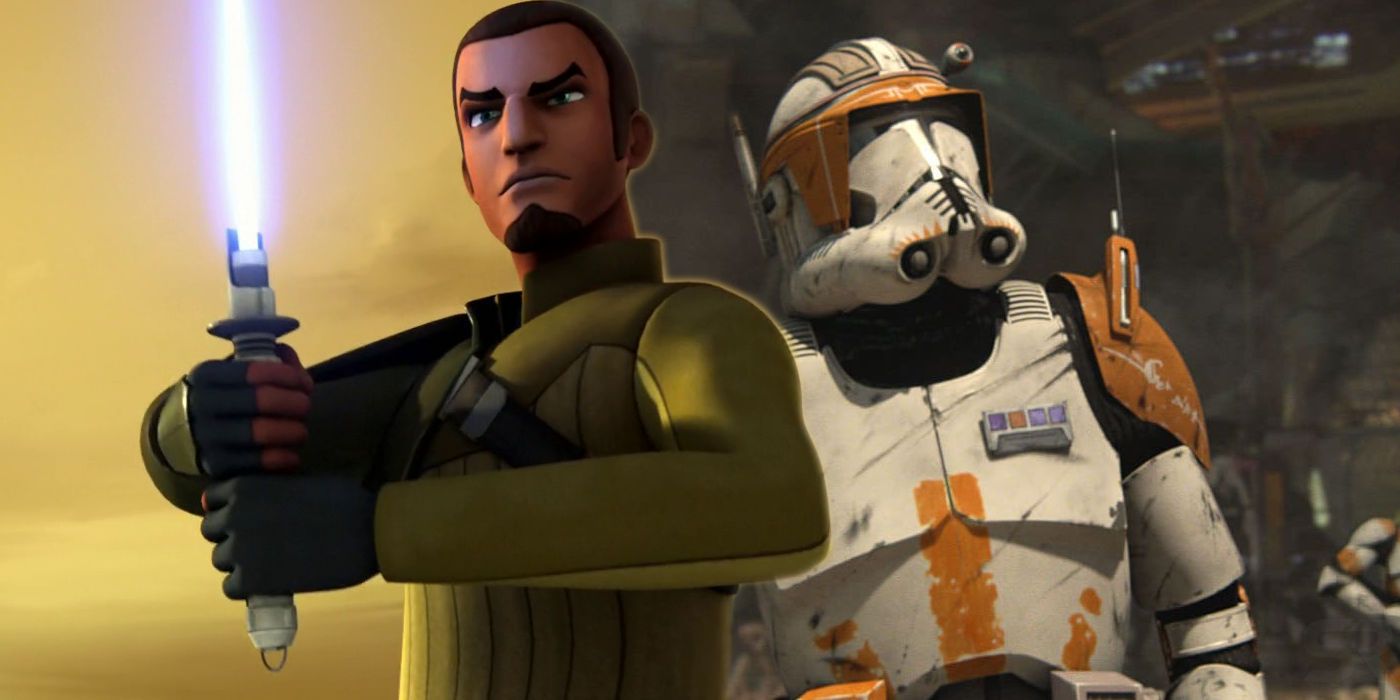The Rebellion in Star Wars - as seen in the original trilogy and in Star Wars Rebels - repeated the same mistake the Jedi made during the Clone Wars. "Wars do not make one great," Master Yoda rightly insisted in The Empire Strikes Back. It was a lesson he had learned the hard way, watching as his friends and students were slaughtered in the Clone Wars.
The Clone Wars were the perfect Jedi trap, which ultimately led to the Order's downfall. The Jedi were forced to participate in the Clone Wars because they had become too closely aligned with the Republic, and thus they served as Generals in the Grand Army of the Republic. None of the Jedi were experienced military leaders; at best they had served on the front lines as troubleshooters. Some of them made appalling tactical errors, and some fell to the dark side or lost faith in the Force altogether. Those who flourished were eventually betrayed by the very Clone Troopers they had commanded. The Jedi were supposed to be keepers of the peace, not soldiers, still less military leaders and strategists.
Yoda may have learned his lesson, but neither the Rebellion nor the other surviving Jedi did. As seen in Star Wars Rebels, Kanan Jarrus became a high-profile member of the Rebel cell on Lothal, and he was considered a leader within the group - especially by Rex, who initially insisted on calling him "General". Ezra Bridger was also a Lieutenant Commander in the Rebellion. Moving on to the first Star Wars film, Bail Organa clearly envisioned Obi-Wan Kenobi as an experienced leader who could help the Rebel Alliance in a time of crisis. Luke Skywalker became a Commander in the Rebel Alliance, and after Return of the Jedi, his sister, Leia, began to learn the ways of the Force even as she continued her political career.
Still, there are signs the lesson had been learned by the time of the Resistance. Prompted by the Force, Leia evidently concluded she had a binary choice between being a Jedi and a politician, and she chose the latter; she then led the Resistance as a Force-sensitive, but not as a Jedi wielding her own lightsaber. Leia took on Rey as her apprentice years later, after Star Wars: The Last Jedi, but appears to have ensured Rey did not receive a designated rank.
According to Rae Carson's novelization of Star Wars: The Rise of Skywalker, after the Battle of Exegol, Rey deliberately rejected a formal position in the new government, because she recognized her destiny was a different one. Instead, she dedicated herself to building a new Jedi Order, one based on an older vision of the Jedi that had not been compromised by tying it too closely to any system of galactic government, one that rejected a military heritage altogether.
The Clone Wars introduced a martial tradition into the Jedi Order, and it's fascinating to see how long it took the Jedi to recover from it. It took almost three generations for the Jedi Order as a whole to learn the harsh, painful lesson Yoda learned during the Clone Wars. Truly, wars do not make one great - nor do they make one a Jedi in Star Wars.


